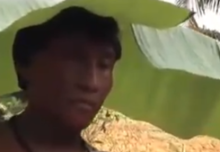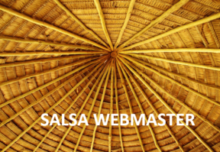Guidelines for Meeting Proposals
This is a working document that may be updated at any time. It was last edited in October of 2023. For further information, contact SALSA President (2023-2027) Laura R. Graham (laura-graham@uiowa.edu) and SALSA Secretary-Treasurer (2022-2025) Simone Athayde (athaydesimone@gmail.com).
A meeting proposal should come in the form of a clear letter. The letter should bear in mind the following considerations and suggestions.
General Guidelines
SALSA biennial (since 2019, formerly sesquiannual) meetings are organized by a local Conference Organizer and an Academic Program Chair; in the process, they consult closely with the President and Secretary-Treasurer of SALSA and the webmaster. Although they work together, the Conference Organizer and the Academic Program Chair need not be in the same country. The meeting proposal should come from the proposed Conference Organizer; it may but need not propose an Academic Program Chair. The choice of the latter may come later, in consultation with the President and past Academic Program Chairs.
SALSA meetings rotate between North America, South America, and Europe, not necessarily in any fixed alternation order. SALSA is committed to conference formats that encourage nonhierarchical exchange of knowledge, collaboration and engagement between scholars/researchers and Indigenous peoples and local communities (see information about all Previous SALSA Conferences).
Most recent SALSA meetings have taken place from a Thursday to a Sunday, and have included a registration period and welcoming reception, two to three days of presentations and workshops, a Friday or Saturday night dinner and a keynote lecture, a Board of Directors meeting, and a two-hour General Membership Meeting following the academic program. Generally, meetings have opened with a reception and registration period prior to the academic portion. The welcoming reception has been held in a reception area of a hotel (as in the lobby), university, museum, or community meeting space. During scheduled breaks in the presentation portion, hosts have maintained coffee or refreshment stations; well-funded hosts have provided more tidbits and wine. Meetings have always broken for lunch, with time for participants to venture out to nearby restaurants. There have usually been spaces at the venue to showcase papers and publications by SALSA members, other relevant publications, film screenings, exhibitions and posters.
Conference Organizer
The Conference Organizer oversees organizing all logistics, and should ensure availability and functional adequacy of the meeting venue and nearby lodging (see Conference Organizer Responsibilities). To start with, the meeting proposal should specify where the conference is to take place. The following are some of the locations, settings and financing models:
- Santa Fe (2007), Estes Park (2005): The meetings took place in a single hotel, where the cost of the meeting rooms and cash-bar lobby was covered by participant lodging.
- Miami (2004), Oxford (2008), Nashville (2013), Gothenburg (2014), Lima (2017), Vienna (2019), Leticia (2023): Each meeting was hosted by a university or institution, and costs were covered by cost-share between registration and by university donation.
- Tulane (2016), Annapolis (2002): The host was a university, and participants stayed in dormitories.
- Belem (2011): The Conference Organizer and the hosting Museum obtained outside funds to hold the meetings in a paid-for conference venue.
- University of Virginia (2021): During the pandemic, the conference took place online over a two-week period. The conference organizer secured a grant from the University and the university largely supported the costs of moving to online.
The Meeting Proposal
The meeting proposal should provide as much information as possible regarding the following general matters and their budget implications. See Checklist for Meeting Proposals:
It is important that the meeting proposal be thorough in the calculation of the costs involved. The Conference Organizer may want to consult with the Secretary-Treasurer of SALSA regarding budgetary matters, prior to submitting a proposal. A carefully laid-out budget makes a strong case for the feasibility of a meeting proposal; any outside funding that the Conference Organizer secures through a local institution or other entity will make it even stronger.
The proposed Conference Organizer should bear in mind that the registration for the meeting is the only ongoing source of SALSA funding for the conference. Registration fees are set once the Board of Directors has selected a successful meeting proposal. The President, in consultation with the Secretary-Treasurer, the Conference Organizer, and the Academic Program Chair, will decide on the various registration fees for students and professional members. If possible, this should be included in the conference’s call for papers. The fees will be set on the basis of the budgeted expenses. If there is outside funding, this will allow SALSA to set lower registration fees. Once a meeting proposal has been deemed successful, the Conference Organizer will work closely with the Secretary-Treasurer of SALSA to ensure that conference costs are carefully managed.
Keynote Lecture and Conference Dinner
The Conference Organizer will also bear most of the responsibility for organizing the Keynote Lecture and group dinner. This has traditionally been on Saturday night. The cost of the Keynote Lecture-dinner may be included in the cost of registration or be separately accounted for, but it is paid for by incoming revenues for the meeting (generally registration). Likewise, any expenses incurred by the participation of an invited keynote or featured speaker (travel, hotel room, meals) must be provided by the incoming revenues of the meeting (registrations and/or outside funding). In the past, speakers who come from nearby as well as from other continents have been recruited. The meeting proposals may incorporate plans for the Keynote Lecture dinner, possible music and entertainment, and possible thank-you gift for the keynote speaker. Again, the more detailed the budget, the better.
In recent practice, the selection of Keynote Speaker has been through a consultative process (see Policy for the Selection of a Keynote Speaker). The Conference Organizer (host) and Academic Program Chair, in consultation with the President and Secretary-Treasurer, have jointly proposed a list of names; the Board of Directors has then made the selection, through vote. A quick review of the history of speakers selected (see SALSA Meetings Keynote Speakers) suggests that, for the most part, speakers have been people from the general region where the event is taking place, and have had long and distinguished careers. It is recommended that organizers review the list of past keynote speakers and consider regional and gender balance as criteria for selection as well. The meeting proposal need not specify who will be chosen.
Academic Program Chair
The Academic Program Chair is in charge of designing and sending out timely calls for panels, papers and other events, reviewing proposals, organizing or overseeing the organization of special events e.g., debates, the Conversations in the Lobby event, and special lectures), designing a schedule, generating certificates of participation and, in close consultation with the Conference Organizer, producing the official Conference Program (see Academic Program Chair Responsibilities). Though our meetings have grown in participation over the years, our hope is that the Academic Program Chair will ensure that we retain some of the features of small meetings, namely ample discussion time for each paper and opportunities for all members to share spaces at the same time for interaction. The meeting proposal may, but need not, be specific about these matters.
The Academic Program Chair should coordinate with the Conference Organizer and the SALSA webmaster to keep all the relevant information about the Conference updated and accessible in the SALSA’s website.
Proposal Submission
Proposals should be submitted to the President (Laura R. Graham, laura-graham@uiowa.edu), with copy to the Secretary-Treasurer (Simone Athayde, sathayde@fiu.edu). The final selection will be determined by the Board of Directors. Deadlines for submissions will be sent to the membership via email and posted on the SALSA website.
Guidelines and Checklists
Responsibilities of Conference Organizers
Guidelines for SALSA conference organizers_Oct 2023Responsibilities of Academic Program Chairs
Guidelines for SALSA for academic program chairs_Oct 2023Past Conference Organizers and Academic Program Chairs
The following SALSA members have been past Conference Organizers or Academic Program Chairs, and may be contacted for advice:
- Janet Chernela – chernela@gmail.com (Organizer 2nd and 4th conferences, 2004, 2007)
- Beth Conklin – a.conklin@Vanderbilt.edu (Organizer 8th Conference, 2013)
- Oscar Espinosa – oespinosa@pucp.edu.p (Organizer 11th Conference, 2017)
- Carlos D. Londoño Sulkin -carlos.londono@uregina.ca (Academic Program Chair 8th and 9th Conferences, 2013, 2014)
- Harry Walker – l.walker@lse.ac.uk (Academic Program Chair 11th Conference, 2017)
- Laura Zanotti – lzanotti13@gmail.com (Academic Program Chair 10th and 11th Conferences, 2016, 2017)
- Claudia Augustat – augustat@weltmuseumwien.at (Organizer 12th Conference, 2019)
- George Mentore – gm3c@virginia.edu (Organizer 13th Conference, 2021)
- Laura Mentore – lmentore@umw.edu (Academic Program Chair 13th Conference, 2021)
- Juan Alvaro Echeverri – jaecheverrir@unal.edu.co (Academic Program Chair 12th Conference, 2019; Organizer 14th Conference, 2023)
- Natalia Buitron – nb668@cam.ac.uk (Academic Program Chair 14th Conference, 2023)
Check all SALSA Conference Organizers
Check all SALSA Academic Program Chairs






